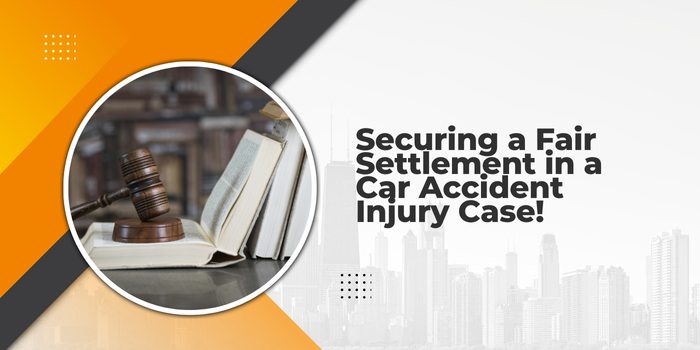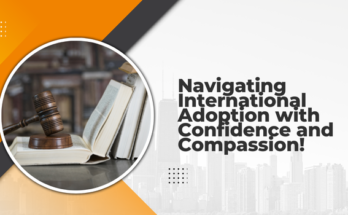Being involved in a car accident can be a traumatic experience, especially if you sustain injuries as a result. In the aftermath of a collision, negotiating a fair settlement for your injuries and damages is essential for obtaining the compensation you deserve. While the process of negotiating with insurance companies and opposing parties may seem daunting, armed with knowledge and strategy, you can navigate the negotiation process effectively. In this guide, we’ll explore the steps to negotiate a fair settlement in a car accident injury case, empowering you to advocate for your rights and achieve a favorable outcome.
Gather Evidence and Documentation:
The foundation of a successful negotiation is strong evidence to support your claim. Begin by gathering documentation related to the car accident, including police reports, medical records, photographs of the scene and vehicles involved, witness statements, and receipts for medical expenses and vehicle repairs. Comprehensive documentation strengthens your position and provides credibility to your claim.
Assess Your Damages:
Before entering into negotiations, it’s essential to have a clear understanding of the full extent of your damages. Calculate your economic damages, such as medical expenses, lost wages, property damage, and out-of-pocket costs. Additionally, consider your non-economic damages, including pain and suffering, emotional distress, and loss of enjoyment of life. Having a thorough assessment of your damages will help you determine a fair settlement amount.
Understand Your Insurance Coverage:
Review your insurance policy and understand the coverage limits and provisions that apply to your car accident claim. Familiarize yourself with the types of coverage available, such as liability coverage, personal injury protection (PIP), and uninsured/underinsured motorist coverage. Knowing your insurance rights and options empowers you to make informed decisions during negotiations.
Determine a Reasonable Settlement Range:
Based on your damages, evidence, and insurance coverage, determine a reasonable settlement range that adequately compensates you for your losses. Consider factors such as the severity of your injuries, liability for the accident, and potential future expenses or complications. Having a clear understanding of your settlement goals allows you to negotiate from a position of strength.
Initiate Negotiations:
Contact the insurance company representing the at-fault party or parties and initiate negotiations for a settlement. Present your case clearly and concisely, providing documentation and evidence to support your claim. Be prepared to articulate your damages and explain why your proposed settlement amount is fair and reasonable given the circumstances of the accident.
Remain Calm and Professional:
Effective negotiation requires patience, diplomacy, and professionalism. Avoid confrontational or aggressive tactics that may escalate tensions and hinder progress. Instead, maintain a calm and composed demeanor, listen actively to the other party’s perspective, and respond thoughtfully and respectfully. Building rapport and fostering open communication can facilitate constructive negotiations.
Consider Counteroffers and Compromises:
Be open to counteroffers and compromises during the negotiation process. While you may have an initial settlement amount in mind, flexibility is essential for reaching a mutually acceptable agreement. Evaluate each offer carefully, weighing the pros and cons, and consider the long-term implications for your case and recovery. Be prepared to adjust your settlement expectations based on the negotiation dynamics and new information that emerges.
Seek Legal Guidance if Necessary:
If negotiations stall or you encounter challenges in reaching a fair settlement, consider seeking legal guidance from a qualified personal injury attorney. An experienced attorney can provide valuable advice, advocacy, and representation to protect your rights and interests. They can negotiate with insurance companies on your behalf, handle complex legal issues, and pursue litigation if necessary to secure the compensation you deserve.
Review and Finalize the Settlement Agreement:
Once you’ve reached a tentative agreement on a settlement amount, carefully review the terms and conditions of the settlement agreement. Ensure that all aspects of your damages are addressed, and there are no ambiguities or omissions that could affect your rights. Seek clarification or modifications as needed before finalizing the agreement.
Obtain a Signed Release and Disbursement of Funds:
Upon finalizing the settlement agreement, obtain a signed release from the insurance company or opposing party, releasing them from further liability related to the car accident. Once the release is executed, coordinate the disbursement of settlement funds, ensuring prompt payment of your damages and closing the negotiation process on a satisfactory note.
Conclusion:
Negotiating a fair settlement in a car accident injury case requires preparation, patience, and strategic communication. By gathering evidence, assessing your damages, understanding your insurance coverage, and engaging in constructive negotiations, you can advocate for your rights and achieve a favorable outcome. Remember to remain calm, professional, and open to compromises throughout the negotiation process, and don’t hesitate to seek legal guidance if needed. With diligence and perseverance, you can secure the compensation you deserve and move forward with confidence on the road to recovery.



